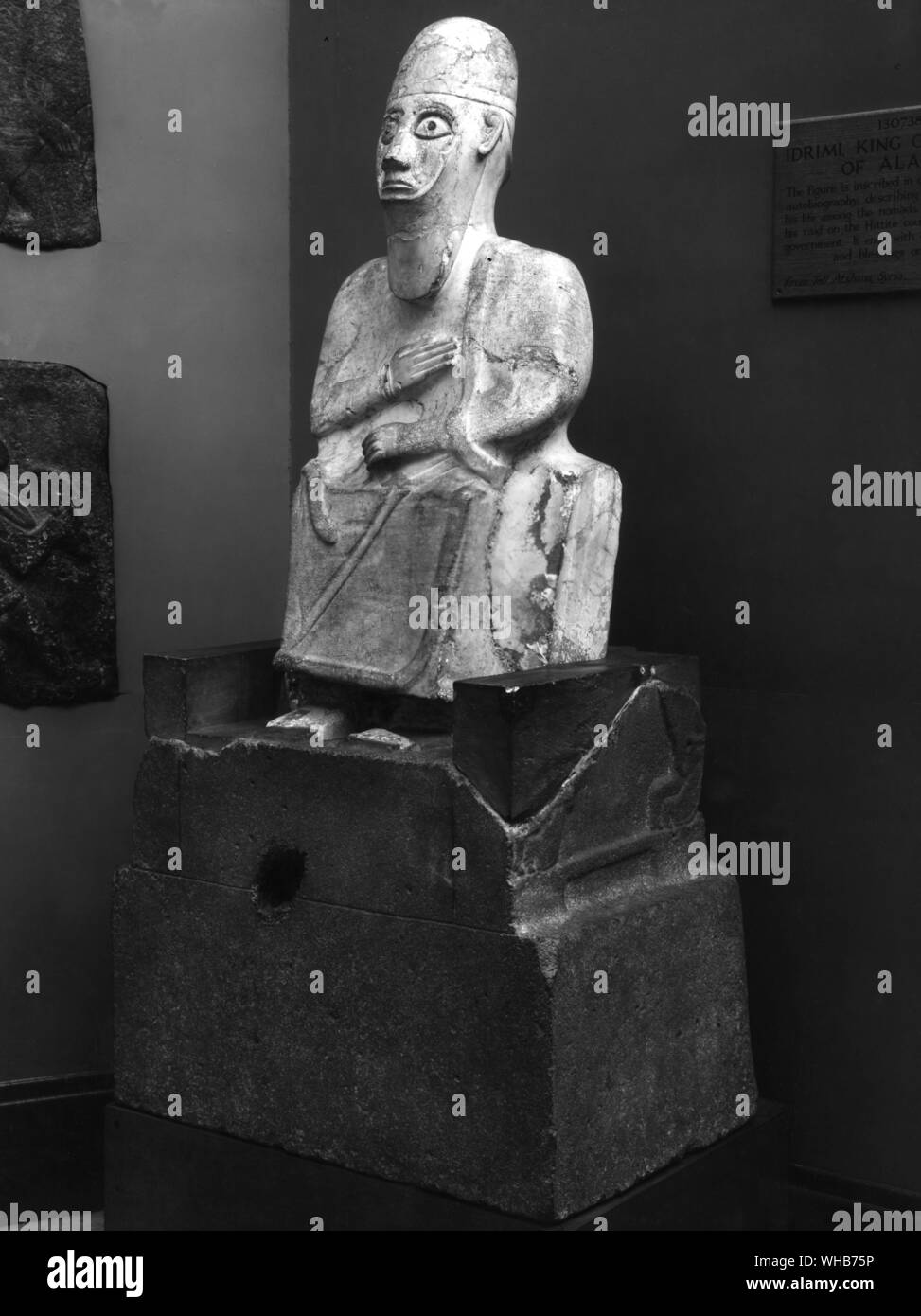Idrimi, King of Alalah - statue of Ydrimi -. Idrimi was the king of Alalakh in the first half of the 15th century BC -. Alalakh, or Alalah, is the name of an ancient city and its associated city-state of the Amuq River valley, located in the Hatay region of southern Turkey near the city of Antakya (ancient Antioch), and now represented by an extensive city-mound known as Tell Atchana -. It is probable that in the first half of the 15th century, Idrimi, son of the king of Aleppo may have fled his city for Emar, traveled to Alalakh, gained control of the city, and been recognized as a vassal by

Image details
Contributor:
Smith Archive / Alamy Stock PhotoImage ID:
WHB75PFile size:
62.5 MB (1.4 MB Compressed download)Releases:
Model - no | Property - noDo I need a release?Dimensions:
4046 x 5403 px | 34.3 x 45.7 cm | 13.5 x 18 inches | 300dpiDate taken:
28 August 2019Photographer:
Smith ArchiveMore information:
Idrimi, King of Alalah - statue of Ydrimi -. Idrimi was the king of Alalakh in the first half of the 15th century BC -. Alalakh, or Alalah, is the name of an ancient city and its associated city-state of the Amuq River valley, located in the Hatay region of southern Turkey near the city of Antakya (ancient Antioch), and now represented by an extensive city-mound known as Tell Atchana -. It is probable that in the first half of the 15th century, Idrimi, son of the king of Aleppo may have fled his city for Emar, traveled to Alalakh, gained control of the city, and been recognized as a vassal by Barattarna. The inscription records Idrimi's vicissitudes: after his family had been forced to flee to Emar, he left them and joined the Hapiru people in Ammija in the land of Canaan, where the Hapiru recognized him as the son of their overlord and gathered around him. after living among them for seven years, he led his Habiru warriors in a successful attack by sea on Alalakh, where he became king..